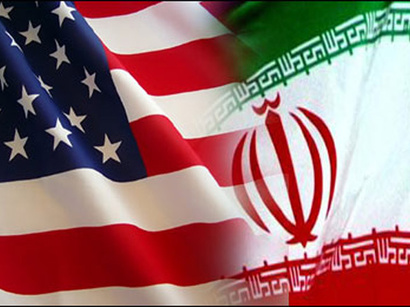
Sober diplomacy should be the baseline to all foreign policy; this seemingly obvious and sensible mindset is frequently ignore.
Iran is currently polarizing the United States’ leaders on foreign policy. Everything hinges on Iran’s nuclear program, an intensely controversial subject shrouded by misgivings and unilateral positions.
The Obama administration and the Iranian government recently reached an agreement to curb Iran’s capacity to build nuclear weapons in the near future but still allow the country to pursue a nuclear energy program.
The purpose of foreign policy is to preserve the security of a country with rational considerations of the capabilities and agendas of other countries. This theory should trump the political ambition and rhetoric of any political actor or sect.
For a nation’s leaders to effectively govern they must balance the needs of their constituents with the demands of lobbying powers, the scarcity of their own influence and, in the case of democratic systems, the struggle to stay elected. That established foreign policy, as a function of politics, is inherently impure.
It is, nonetheless, the obligation of public leaders to prioritize national stewardship above petty political pressures and sectarian allegiances. The security of a nation is invariably more important than any official retaining office.
The Iran deal would limit the nation’s operating centrifuges by two-thirds to 5,060 and reduce its stockpile of low-enriched uranium from 10,000 kilograms to 300 for 15 years. In exchange for Iran’s scaled-back nuclear program, western powers will alleviate its economic sanctions. The deadline for negotiations is June 30.
Ratification of the deal requires Congressional approval, which at present is doubtful given most Republicans and some Democrats vehemently oppose the deal.
The deal’s detractors wantonly refuse to treat with Iran. Junior Arkansas Senator Tom Cotton’s stubbornness led him to author a letter sent to Iranian authorities signed by 46 Senate Republicans in March, which undermined the U.S.’s sincerity to honor the compact after President Obama’s tenure and the constitutionality of the deal.
The adversarial history of the U.S. and Iran warrant skepticism in granting credence to Iran’s willingness to adhere to the proposed nuclear agreement. Relations between the two countries have been stained by dishonest dealings and unabridged contempt since the U.S. ousted Iran’s democratically elected Prime Minister in 1953. Since then, Iranian revolutionaries took more than 60 hostages from the American embassy in Tehran in 1979 and in 2002 President George W. Bush denounced Iran as belonging to an axis of evil. President Obama’s 2013 phone call with newly elected Prime Minister Hassan Rouhani was the first conversation between American and Iranian heads of state in 30 years.
Iran’s regional acrimony with Israel, a close American ally and nation-state particularly favored by conservatives, categorically dissuades many American leaders from negotiating with Iran. Critics of the deal, like South Carolinian Senator Lindsey Graham, council the U.S. to demand Iran’s complete concession on the nuclear issue, which would entail Iran having no nuclear capabilities, and indignantly maintain unwillingness to compromise. This is unacceptable.
Iran is a dangerous, highly developed nation with an able military and arguably bears ill intentions for the U.S., which is why it is imperative for the U.S. to confirm peaceful terms with Iran.
If Iran is willing to enter a contract of nuclear arms prevention, the U.S. should solidify that deal. The alternatives are to have no deal, which would liberate Iran to develop nuclear weapons, or to pressure Iran into submission, which would provoke the historically hostile country. These are both diplomatically disastrous options.
It is in America’s best interests if Iran has a docile nuclear program. The Obama administration’s deal moderates Iran’s nuclear capacity and strengthens international ties. Any American leader who will not treat with Iran on principle is committing a breach of diplomacy. It may be politically advantageous for some politicians to rail against the Iran deal and keep faith with Israel on all matters, but it is self-serving and reckless. Balking at the deal amounts to gambling with national security.
The Cold War demonstrated that entrenched ideological standoffs between militarily endowed nations, or opposed alliances of such nations, breed poisonous international relations, which in that era escalated into American wars in Korea and Vietnam and a Soviet war in Afghanistan. These conflicts extinguished millions of lives and decimated entire countries. The Iron Curtain has fallen and, a new century has ushered in a new international dynamic. It is time for the U.S and all world powers to embrace a world construct built on thoughtful diplomacy and compromise. Prevention of war should outweigh all else.



